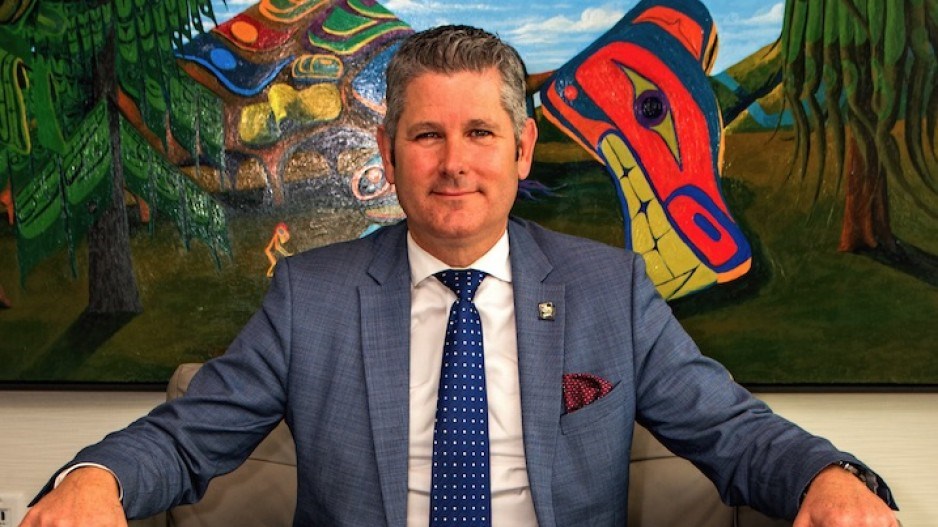A booming provincial economy has helped the B.C. banking sector’s biggest employer enjoy mortgage and commercial-loan growth that is substantially ahead of last year’s numbers and the bank’s growth projections, says the Royal Bank of Canada’s (RBC) new regional president for B.C.
“Looking at the real estate side [for mortgage loans], it’s the best start we’ve had in 15 years in terms of growth,” Martin Thibodeau told Business in Vancouver in an exclusive interview.
Countrywide, he said, the bank has about $400 million more in mortgage loans than the bank’s target for the year’s first four months. Of that unexpected mortgage growth, $363 million has come from B.C.
The bank’s commercial banking business is also booming.
Outstanding balances of commercial loans are up 22% compared with last year’s totals, which is “unheard of” for RBC, he said. “It’s significant, usually, when you are up 8% or 9%. That’s a big year.”
Thibodeau oversees mortgage lending workers, financial planners and other staff in RBC’s 169 B.C. bank branches, which employ 3,531 of the bank’s 6,840 workers in the province.
The remaining staff work in divisions such as RBC Dominion Securities, RBC Insurance and RBC Capital Markets.
BIV earlier this year asked all major banks how many staff they employed in B.C. at the end of 2017, and RBC came out on top, followed by TD Bank Group’s 4,388 employees, Scotiabank’s 3,020 employees and CIBC’s 2,200 employees. BMO Financial Group did not provide an employee count but it told BIV a year ago that it had 3,000 employees in B.C. at the end of 2016.
“If you look at the fundamentals of B.C., it is a place people want to come and live, retire and immigrate,” Thibodeau said. “That’s not about to stop any time soon. It may slow down a bit for different reasons but I don’t think it will fundamentally [change].”
However, Vancouver’s soaring residential real estate prices could stall the inflow of new residents to the province.
RBC released a study in April that found that Vancouver’s housing market is the least affordable for any regional market ever recorded in Canada.
The cost of owning a home at today’s prices represents an “astounding” 85.2% of a typical household’s income in the fourth quarter, the bank said in Housing Trends and Affordability.
The report described Metro Vancouver’s rising home prices as a “worrying trend,” noting government initiatives to cool the market. One measure aimed at making homes more affordable was the BC NDP government’s plan to hike the foreign-buyer tax to 20% from 15% and to make that tax effective on homes in the Fraser Valley, Capital Regional District, Nanaimo Regional District and Central Okanagan in addition to Metro Vancouver.
The tax, introduced by the former BC Liberal government, had previously been in effect only for Metro Vancouver.
A new tax, which the NDP government plans to introduce later this year, is dubbed the speculation tax but is effectively an empty-homes tax. The plan provoked complaints from many B.C. residents who said they were being unfairly penalized for owning vacation homes in the province. The government subsequently revised the legislation to shift more of the burden to property owners living outside the province.
The tax was originally said to apply to the entire regional districts of Metro Vancouver, the Fraser Valley, Victoria (capital region) and Nanaimo, and the municipalities of Kelowna and West Kelowna.
In March, Finance Minister Carole James announced exemptions for small islands and smaller communities in regional districts – particularly the Capital Regional District and Nanaimo Regional District. •




